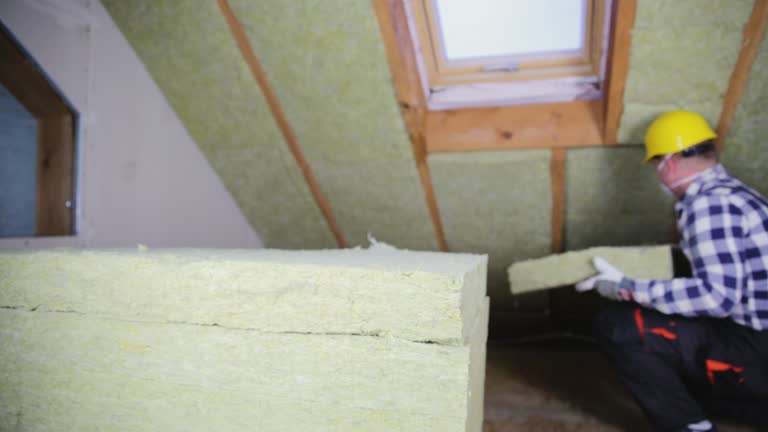Imagine walking into a grocery store and finding wilted lettuce, warm milk, and melting ice cream. Not exactly the shopping experience you’d want, right? Proper insulation is not just a convenience, but a necessity in the food and beverage industry. It ensures that products remain fresh, safe, and delicious from production to consumption. In this blog, we’ll explore why insulation is vital for preserving food and beverages, the types of insulation used, and how you can benefit from these protective measures. Whether you’re a business owner or a curious consumer, understanding the importance of insulation can transform your perception of food safety.
Why Insulation Matters
Insulation plays a key role in temperature regulation, which is essential for maintaining the quality and safety of food and beverages. Without adequate insulation, temperature fluctuations can lead to spoilage, which not only affects taste and texture but also poses health risks. Insulated packaging and storage help prevent bacterial growth, extending the shelf life of perishable items. This is particularly important for businesses that need to ensure product integrity throughout the supply chain.
Proper insulation is also environmentally friendly. By reducing spoilage, businesses can minimize waste and reduce their carbon footprint. Additionally, efficient insulation reduces energy consumption because less energy is required to maintain stable temperatures. This dual benefit of product preservation and energy efficiency makes insulation a smart choice for any food-related venture.
Types of Insulation
There are several types of insulation used in the food and beverage industry, each with its own unique benefits. Foam insulation is a popular choice due to its excellent thermal properties and versatility. It can be molded into various shapes, making it ideal for packaging different products.
Another common type is vacuum insulation panels (VIPs), which offer superior thermal resistance in a compact form. These panels are perfect for applications where space is limited. Reflective insulation, made of aluminum foil, is another option that reflects heat away from the product, maintaining a constant internal temperature.
Each type of insulation has its pros and cons, and the choice often depends on specific needs and constraints. Understanding these options can help businesses make informed decisions that align with their operational goals.
Insulation in Cold Storage
Cold storage facilities are crucial for preserving large quantities of perishable goods. Proper insulation in these environments is vital to maintaining low temperatures and preventing spoilage. Insulated walls, floors, and ceilings ensure that heat ingress is minimized, allowing for consistent temperature control.
The design of cold storage facilities often includes high-density insulation materials that offer exceptional thermal resistance. This helps maintain the desired temperature range and reduces the workload on cooling systems, leading to significant energy savings. Maintaining efficient insulation is even more critical to avoid costly reach in cooler repair especially in regions like Hawaii.
Insulation for Transportation
Transporting food and beverages poses unique challenges, especially over long distances and varying climates. Insulated transport containers are essential for preserving product quality during transit. These containers are designed to minimize temperature fluctuations, ensuring that goods arrive at their destination in optimal condition.
Refrigerated trucks, or “reefers,” are a common sight on highways. They rely on a combination of cooling systems and insulation to keep cargo cold. Advanced insulation materials and technologies, such as phase change materials (PCMs), are increasingly being used to enhance temperature regulation during transport.
The cost of insulated transportation can be offset by the reduction in spoilage and waste, making it a worthwhile investment for businesses looking to maintain high-quality standards.
Benefits for Consumers
Consumers also benefit from proper insulation in food and beverage preservation. When products are kept at the right temperature, they retain their nutritional value, taste, and texture. This means consumers can enjoy fresh, flavorful foods without worrying about potential spoilage.
In addition to quality, insulation helps ensure food safety. By preventing bacterial growth and cross-contamination, insulated packaging and storage provide an extra layer of protection. This is especially important for vulnerable populations, such as the elderly or those with compromised immune systems, who may be more susceptible to foodborne illnesses.
Insulation and Food Safety
Food safety is a top priority for both consumers and businesses. Proper insulation plays a crucial role in maintaining safe temperatures, which is essential for preventing the growth of harmful microorganisms. Insulation also helps protect against contamination by providing a barrier between the product and external elements.
Regulatory bodies have established strict guidelines for food safety, and insulation is a key component of compliance. Businesses that invest in high-quality insulation not only meet these standards but also demonstrate their commitment to consumer health and safety.
The Future of Insulation
The future of insulation in the food and beverage industry looks promising, with ongoing advancements in materials and technologies. Researchers are exploring new insulation solutions that offer improved thermal performance, sustainability, and cost-effectiveness.
Innovative materials, such as aerogels and bio-based foams, are gaining attention for their potential to revolutionize insulation. These materials offer exceptional thermal resistance and are environmentally friendly, aligning with the industry’s push toward sustainability.
Conclusion
Proper insulation is an essential component of food and beverage preservation. It ensures product quality, safety, and sustainability while reducing energy consumption and waste. Whether you’re a business owner or a consumer, understanding the importance of insulation can enhance your appreciation of the complex systems that keep our food fresh and safe. For more insights into how insulation impacts the food industry, consider reaching out to professionals who specialize in innovative insulation solutions.

